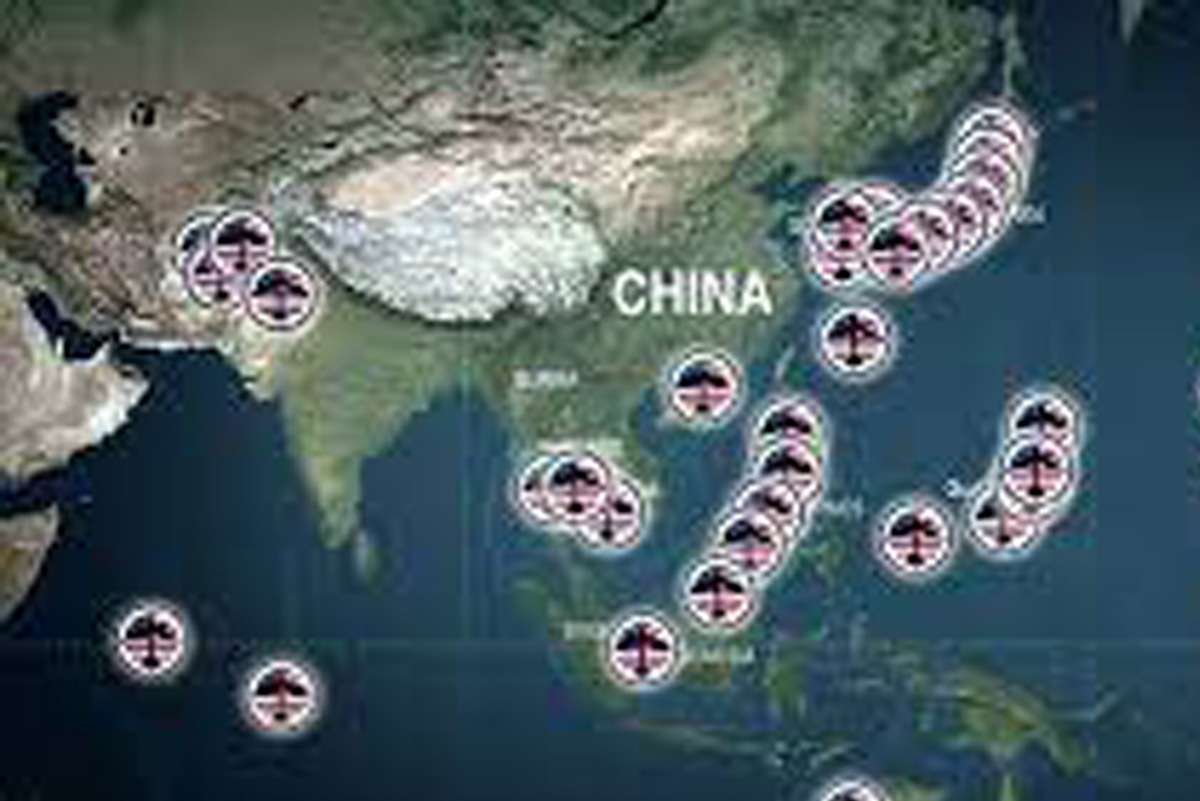As a preemptive measure, China wants a full control over South China Sea. This is the area through which the greatest amount of traffic for India passes. Also the Chinese can think of controlling Malacca Strait from the Pacific side.
Source-Wikipedia
China has mastered and manipulated a dispute in South China Sea out of nothing.
China, the Philippines, Vietnam, Brunei, Malaysia and Taiwan all have differing claims on waters and islands.
China claims almost the entire South China Sea through a ‘nine-dash line’, which extends into other countries’ Exclusive Economic Zones (200 nautical miles area for exploitation) 15 mm barrels of oil (a sixth of the global supply) transit through the sea daily. Fears of conflict have risen after the 2012 stand-off between China and the Philippines at Scarborough Shoal.
Source-Wikipedia
China now building runways, army facilities on reclaimed reefs in the Spratly Islands
Why is South China Sea important?
- On a strategic level, it’s about control of the world’s busiest shipping route. China is laying claim to 90 percent of the South China Sea.
- About half the world’s commercial shipping passes through the area and most nations are worried if anything goes wrong then it will cripple their economy.
- On a geological level, it is about some of the world’s most prospective seabed oil and gas deposits.
- On a military level, it’s about China’s avid desire to push the US navy away from its coast. Beijing craves uncontested domain over its maritime approaches. The US Seventh Fleet has been unchallenged ruler of the Pacific since World War Two. A fast-rising China is now challenging.
- And on the level of global governance, it’s about whether there are any rules governing countries, or whether a country can get its way through use of force.
Source-Wikipedia
China’s concern
China will continue to push the envelope in the South China Sea because controlling the waters is key to its national security strategy.
The United States will be limited in its ability to respond because of its concerns about escalation and because of China’s nuclear capabilities.
Beijing will lobby Washington to keep Japan out of the dispute, but Tokyo will remain involved.
Beijing’s and Washington’s divergent perspectives are rooted in radically different national and regional strategies.
On the world stage, China portrays the South China Sea dispute as fundamentally a question of sovereignty. The United States, however, foregrounds concerns about freedom of navigation.
Since the end of the Cold War, the United States has been the unquestioned pre-eminent power in the Pacific Rim, assisted by its allies, most notably Japan and South Korea. Simultaneously, however, China has been emerging as a potential regional hegemon, and the South China Sea has become the most visible area of tension.
A core but often unstated component of U.S. national strategy is to maintain global superiority at sea. By controlling the seas, the United States is able to guarantee the secure movement of U.S. goods and to deploy military power worldwide. This preserves global economic activity — feeding the domestic economy — while ensuring that any threat to national security is addressed abroad before it can reach the homeland. This state of affairs is enforced by the powerful U.S. Navy, but it is undergirded by Washington’s particular interpretation of international law.
In China’s near seas, the U.S. global imperative comes into conflict with China’s emerging regional needs. Since the early 1980s, China has undergone a transition from an insular, self-sufficient pariah state to a major exporter. This has forced Beijing to reassess its maritime risks and vulnerabilities. China is no longer able to protect its national economy without securing the maritime routes it needs to maintain trade and to feed its industrial plant.
The South China Sea is one such essential waterway, made more important by the value of the sea’s fisheries and subsea resources such as natural gas. But addressing the risks of its near seas means tackling the time-consuming and costly project of building, training and deploying a stronger blue-water navy while also establishing a greater maritime buffer along the Chinese coastline. China’s assertion of ownership and control in the South China Sea, coupled with liberal interpretations of its rights within its claimed exclusive economic zone, gives Beijing at least a modicum of greater security. With neighbors unable or unwilling to directly challenge China’s concrete actions in the sea, and the United States hesitant to use force to halt Chinese expansion, Beijing is reshaping the status quo unimpeded.
Source-Strategic Affairs

